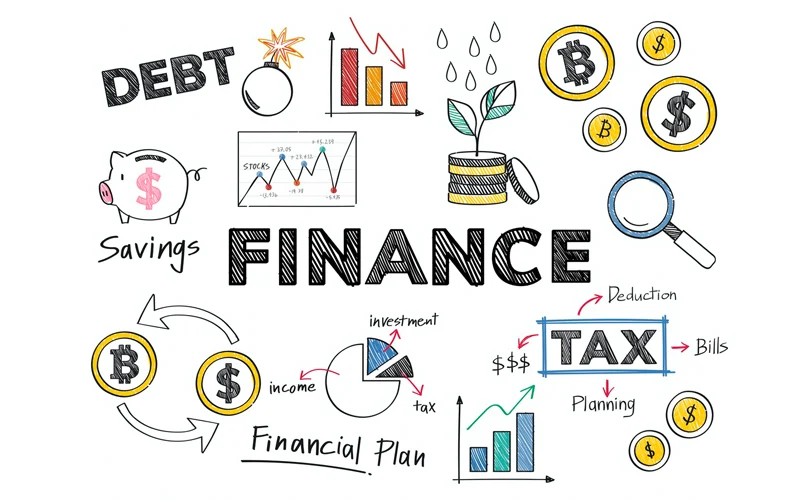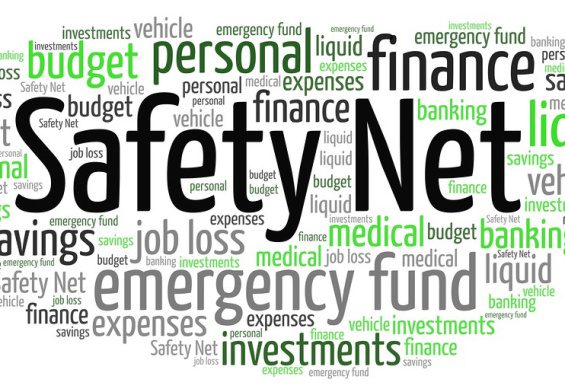
Table of Contents
Intro: Financial Strategies for Single Parents
Financial Strategies for Single Parents: As a single parent, you have problems of your own, and one glaring problem you have is managing finances. It’s vital to have a solid financial strategy when you’re living the single parent life because the responsibility of providing for your family is now yours alone. Going about managing your money effectively can help you with daily spending, saving for your children’s future education, or it can prepare you for your retirement. In this article we will discuss how single parents can use financial strategies to lessen stress and build wealth over time.

1. Create a Realistic Budget
Single parents will tell you that budgeting is the basis of any successful financial scheme. A well created and proper budget will help you keep track of your income and spendings so that you put your resources in the right place.
Steps to Creating a Budget:
List all sources of income: Second include your salary, child support, alimony, government benefits, and any other sources.
Track your monthly expenses: Instead of spending all your money on your essentials (house, food, transportation), you want to separate those expenses from non-essentials (movies, dining out, etc.).
Allocate savings: See if you’re able to save at least 10-20 percent of your income each month.
Review and adjust regularly: Periodically review your budget to see if the circumstance still remain the same, or if it needs to be changed.
With a well structured budget you never over spend, you save for emergencies and that your financial priorities are taken care of – your kids education;
Being a single parent is unpredictable; you don’t know what can happen; you may experience a medical emergency, you might need a car repair, or lose your job — all of which require basic tools of survival. An emergency fund serves as a shield against your bad situations, interfering with your debt buildup.

2. Build an Emergency Fund
Life is full of unexpected events and as a single parent you must prepare for them such as a medical emergency, car repairs or job loss. An emergency fund is a financial cushion to give you peace of mind and stop you from amassing debt when things get tough.
How to Build an Emergency Fund:
Start small: Try to save somewhere between 3 and 6 months’ worth of living expenses.
Automate savings: The next thing you should do is set up an automatic emergency transfer from your checking account to a savings account just for emergencies.
Keep it accessible but separate: Make sure your emergency fund is liquid (meaning easily accessible) but not so tempting to withdraw for non emergencies.
An emergency fund, like most financial goals, takes some time, but even small contributions can become a large safety net.
3. Maximize Government Benefits and Support Programs
One way for single parents to help ease financial pressures is by qualifying for several government programs and benefits. They are programs that provide financial assistance, diminished tax burdens and child care and educational expenses.
Common Benefits for Single Parents:
Child tax credit: In many countries you do get tax credits or tax deductions for parents so that reduces your overall tax liability.
Earned income tax credit (EITC): One benefit of this is that you may be due to increase your tax refund if you are a low or moderate income earner.
Subsidized childcare: Subsidized childcare may be one way that government programs ease the trouble of paying for childcare.
Food assistance programs: Supplemental Nutrition Assistance Program (SNAP) programs help low income families to be able to afford groceries.
Single parents can free themselves of financial burden by maximizing these benefits and redirecting the money to the long term financial goals.

4. Consider Life and Health Insurance
You are the single parent and you are the child’s primary provider. Protecting your family with life and health insurance can protect them, if the unexpected happens to you. Insurance might be an extra expense, but it’s an integral piece of planning financially for single parents.
Life Insurance:
It provides life insurance that supports your children if you die. Term life insurance is sometimes the least expensive and practical kind when you can afford to pin down.
Term life insurance: So, this policy offers coverage for a specific period (of 20 years, for example) and if you do die during the term it’ll pay out a death benefit.
Whole life insurance: This is a higher cost policy that gives you lifetime coverage and a savings component, but for most single parents term insurance is all you need.
Health Insurance:
Make sure you have enough health insurance for you and your children. Without proper coverage, medical emergencies can put you into financial ruin.
Affordable Care Act (ACA) plans: ACA marketplaces are government sponsored health insurance that many single parents qualify for.
Employer-sponsored health insurance: If your employer provides healthcare benefits, use these to gain lower cost coverage.
5. Plan for Your Child’s Education
The insurance policies you have in place help to protect your family’s financial future.
Single parents have one of the biggest expenses: education. The sooner you begin to think about your child’s education the better off organized you will be to meet the costs without putting your financial future in jeopardy.
Saving for College:
529 plans: With these tax–advantaged accounts, you can save for your child’s education, and the earnings grow tax free so long as you use the money for qualified education expenses.
Education savings accounts (ESAs): Same as a 529 plan but with tax advantages.
Even small deposits here can grow overtime, so it won’t be necessary to finance your child’s college through student loans or other types of debt.
Scholarships and Grants:
Incentivize your child to apply for scholarships and grants as you don’t have to repay them. And that can result in substantial savings out of pocket for their education.
6. Reduce and Manage Debt
One income can be overwhelming but especially for a single parent trying to spend household expenses. It’s important to reduce high interest debt, as it takes money out of your paycheck, and not to mention money that you would have otherwise been using to save.
Strategies to Manage and Pay Off Debt:
Prioritize high-interest debt: The advice is to pay bills with high interest rates first, paying only minimum payments on the other debts.
Consolidate debt: For example, combine high interest debt into one lower interest loan so you’re less likely to get overwhelmed with payments.
Avoid unnecessary debt: Avoid spending with credit cards unless it’s for essential expenses and only borrow new money when you absolutely must.
Seek professional help: If you’re struggling with debt, a debt repayment strategies may have to be talked over with a financial advisor or a credit counselor.
When you pay off debt, the money you’re saving isn’t paying off debt anymore; that money can be redirected to savings and investments.
7. Invest for the Future
Even if you’re a single parent and have very little you can invest with, you need to invest if you want to build your wealth. By using it, you put your money to work growing over time and reach for long term financial goals such as retirement, homeownership.
Types of Investments for Single Parents:
Retirement accounts: Open an individual retirement account (IRA), or take advantage of employer sponsored retirement accounts as a 401(k). Tax advantages come with many retirement accounts making them sound investments.
Stocks and mutual funds: If you have extra savings, put that into stocks, bonds of mutual funds and grow wealth along the way. If you can, to diversify and cut risk, consider low cost index funds.
Real estate: Investing in real estate as a way to earn more wealth over a longer period of time involves the acts of buying and selling a piece of property for profit.
Being able to contribute small, regular amounts to your investments is very powerful and yields greatly to compound interest over time.
8. Create a Will and Estate Plan
If you’re a single parent, then making estate plans is as important as it is for any other person since it ensures that your children are looked after and your wishes for distributing your assets are preserved, in case something were to happen to you.
Key Elements of Estate Planning:
Will: A will tells other people in your life what to do with your stuff, who to give it to, and who is going to look after your children if you die.
Trusts: The trust will grant the ability to save money or assets for your child’s future which will be continued after your death.
Guardian designation: You need to legally designate who will be guardian of your children, should something happen to you.
Powers of attorney: Have powers of attorney for financial and medical decisions in case you become incapacitated.
An estate planning attorney can help you make sure your wishes are legally binding and your children are protected.
9. Increase Your Income
Raising your income as a sole parent can lead to more money freedom. Whatever the reason may be, there are several ways you can increase your earnings through your current job, your side hustle or even more education.
Ways to Increase Your Income:
Ask for a raise: Don’t be afraid to ask for a raise if you’ve been around your employer long enough and you’ve shown value.
Consider freelancing or side gigs: You can supplement your income with freelance, remote work or side hustle.
Further your education or skills: More certifications, skills or even degrees that you pursue will also increase your earning potential and career opportunities.
The more you earn, the more you have to save, invest and put a solid financial future for your family on a safe footing.
10. Work with a Financial Advisor
Being a single parent can be an expensive proposition. In this situation, a good financial advisor can advise you and direct you in creating a financial plan you hope will turn your aspirations into reality.
Benefits of a Financial Advisor:
Personalized financial planning: Advisors help you to set attainable goals and plan to get to them.
Investment strategies: Investment experts recommend what you should invest according to your financial status and personal goals.
Debt management: For paying off that debt, though, advisors can suggest strategies that aren’t mutually exclusive with other financial goals.
Long-term planning: Retirement planning, saving and education savings are some areas where financial advisors can help you to be sure your finances are secured.
While it may seem like another expenditure, the investment will pay off in the long run as you’ll be able to save money by making smart choices and utilizing your ability to the fullest by working with a financial advisor.
Conclusion: Take Control of Your Financial Future
If you are single parent, dealing with your finances can be confusing, but here are a couple of tips to help you build a secure future for you and your kids. The first steps to get on the path to financial stability are budgeting, saving, paying down debt, investing and planning for the future.
Being proactive regarding your finances is stressful relieving on your future family. Using these strategies, you’ll be in a good enough position to weather the storm and create a bright future for your children, while managing the financial hardships within single parenthood.
FAQs on Financial Strategies for Single Parents:
1. What are the first steps a single parent should take to improve their financial situation?
Start by creating a detailed budget, building an emergency fund, and reducing high-interest debt. This will provide a foundation for managing finances effectively.
2. How can single parents create a realistic budget?
Track all sources of income and monthly expenses, categorize essential and non-essential spending, and set clear financial goals. Allocate a portion for savings and emergency funds.
3. What is an emergency fund, and how much should single parents aim to save?
An emergency fund is a financial cushion for unexpected expenses. Single parents should aim to save 3-6 months’ worth of living expenses.
4. How can single parents save for their children’s education?
Open a 529 plan or an Education Savings Account (ESA) to save for college in a tax-advantaged way. Small, regular contributions over time can grow into significant savings.
5. What government benefits are available for single parents?
Single parents may qualify for benefits like the Earned Income Tax Credit (EITC), Child Tax Credit, food assistance (SNAP), subsidized childcare, and health insurance through ACA.
6. Why is life insurance important for single parents?
Life insurance ensures your children are financially supported if something happens to you. Term life insurance is a cost-effective way to secure this protection.
7. What types of life insurance are best for single parents?
Term life insurance is generally the most affordable and provides sufficient coverage during the child-rearing years.
8. How can single parents reduce and manage debt?
Focus on paying down high-interest debt first, avoid unnecessary borrowing, and consider debt consolidation to lower interest rates and simplify payments.
9. Can single parents invest with limited income?
Yes, even small contributions to retirement accounts (401(k), IRA) or low-cost index funds can help grow wealth over time.
10. How can single parents plan for retirement while managing other financial responsibilities?
Prioritize saving in retirement accounts like 401(k)s or IRAs. Contributing even a small amount consistently can build a significant nest egg over time.
11. What financial tools can help single parents manage their money effectively?
Budgeting apps, automatic savings plans, and debt tracking tools can help single parents stay organized and disciplined with their finances.
12. Can single parents still qualify for a mortgage?
Yes, single parents can qualify for a mortgage by having a steady income, a good credit score, and enough savings for a down payment. Some government programs offer homeownership assistance.
13. How can single parents find affordable childcare?
Look for government-subsidized childcare programs or community-based resources. You can also explore flexible work arrangements or shared childcare options with other single parents.
14. What are some ways single parents can increase their income?
Consider asking for a raise, starting a side hustle, freelancing, or pursuing further education or certifications to increase your earning potential.
15. Should single parents work with a financial advisor?
Yes, working with a financial advisor can help you create a long-term financial plan, optimize investments, manage debt, and ensure that your financial goals are achievable.
16. How can single parents balance saving for their children’s future and their own retirement?
Prioritize retirement savings first since there are more options for funding education (loans, scholarships) than for retirement. Then, allocate some funds toward education savings.
17. How can single parents prepare financially for emergencies?
Build an emergency fund, secure adequate health and life insurance, and have a plan in place for unexpected events like job loss or medical emergencies.
18. Are there any tax benefits for single parents?
Yes, single parents can benefit from tax credits like the Child Tax Credit and the Earned Income Tax Credit (EITC), which can reduce tax liability and increase refunds.
19. How should single parents plan for their children’s healthcare needs?
Ensure you have adequate health insurance coverage for your children. You can explore government health plans or employer-sponsored plans if private insurance is unaffordable.
20. What financial strategies can help single parents reduce stress?
Creating a realistic budget, building savings, and planning for the future can reduce financial stress. Working with a financial advisor may also help you manage your financial life more easily.
21. How can single parents prepare for long-term financial goals?
Set clear financial goals, such as buying a home, funding your children’s education, or retiring comfortably. Develop a financial plan that incorporates budgeting, savings, and investments.
22. What role does estate planning play for single parents?
Estate planning ensures that your children are financially protected in case of your death. A will, trust, and designating a legal guardian are critical components of this plan.
23. What should single parents consider when setting up a will?
A will should include instructions for the distribution of your assets and the designation of a guardian for your children. It’s essential for protecting your children’s future.
24. How can single parents save on everyday expenses?
Cut unnecessary costs by meal planning, using coupons, shopping for deals, buying second-hand items, and reducing entertainment and dining-out expenses.
25. What insurance policies should single parents prioritize?
Single parents should prioritize life insurance, health insurance, and disability insurance to protect themselves and their children from financial hardship.
26. How can single parents teach their children about money management?
Involve your children in budgeting, saving, and financial decision-making from an early age. Teaching them about the value of money helps build good financial habits.
27. What are some ways single parents can avoid financial scams?
Be cautious of high-interest payday loans, debt settlement schemes, or “get rich quick” investment opportunities. Work with a trusted financial advisor to avoid falling into scams.
28. How can single parents manage financial stress during a divorce or separation?
Work with a financial planner or attorney to create a budget, divide assets fairly, and establish child support agreements that meet the financial needs of your children.
29. What are some ways single parents can save for both short- and long-term financial goals?
Use separate accounts for different goals—such as an emergency fund, retirement account, and college savings plan—and automate regular contributions to each.
30. How often should single parents review their financial plans?
It’s a good idea to review your financial plan at least once a year or whenever there’s a significant life change, such as a new job, a change in child support, or major expenses like education.
Also visit:-



